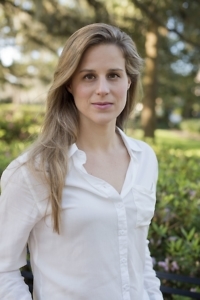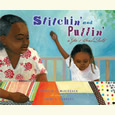Storytelling as a Synonym for Culture
A Chapter 16 writer reports from the Mildred Haun Conference on Appalachian writing
In Mildred Haun’s only published story collection, The Hawk’s Done Gone, narrator Mary Dorthula White unflinchingly tells of mountain life, from quaint ancient beliefs to harrowing infanticide. The Mildred Haun Conference: a Celebration of Appalachian Literature, Scholarship, and Culture, held each year at Walters State Community College in Morristown, lands somewhere in the palatable middle of this broad scope. The free event champions mountain culture and heritage while simultaneously shedding light on some of its shadows. In the third incarnation of the Mildred Haun Conference, held February 1-2, 2013, writers came from across the region to celebrate their craft by both reflecting on the past and cautiously looking forward.
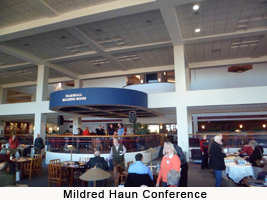 Each year the conference includes something for both writers and scholars. Activities take place primarily in a snug hub of the humanities building, with participants shuffling between the lobby, classrooms, and the theater throughout the day. By 10 a.m., the writing workshops were beginning: fiction, led by Pamela Duncan; memoir, led by Jason Howard; poetry, led by Jesse Graves; children’s books, led by Anne Shelby; and publishing, led by Ted Olson. Because it’s disruptive for a reporter to enter and leave a classroom while a workshop is in progress, I could attend only one of them and chose Jesse Graves’s session out of familiarity, as he had been my professor at East Tennessee State University. During the next two hours, Graves guided participants through two poetry-writing sessions. Like me, two of the other attendees had never written poetry before, but they shared their rough drafts with the group and absorbed the constructive criticism for their efforts. I did not read mine aloud but I was pleasantly surprised by how it turned out and saved it to work on later. (It’s still under construction.)
Each year the conference includes something for both writers and scholars. Activities take place primarily in a snug hub of the humanities building, with participants shuffling between the lobby, classrooms, and the theater throughout the day. By 10 a.m., the writing workshops were beginning: fiction, led by Pamela Duncan; memoir, led by Jason Howard; poetry, led by Jesse Graves; children’s books, led by Anne Shelby; and publishing, led by Ted Olson. Because it’s disruptive for a reporter to enter and leave a classroom while a workshop is in progress, I could attend only one of them and chose Jesse Graves’s session out of familiarity, as he had been my professor at East Tennessee State University. During the next two hours, Graves guided participants through two poetry-writing sessions. Like me, two of the other attendees had never written poetry before, but they shared their rough drafts with the group and absorbed the constructive criticism for their efforts. I did not read mine aloud but I was pleasantly surprised by how it turned out and saved it to work on later. (It’s still under construction.)
After Graves had rounded up his dozens of poetry books (his “toolkits,” as he called them), he invited me to join him for lunch off campus with Catherine Childress, a graduate student at ETSU, and Thomas Holmes, ETSU professor of literature and language. The ensuing conversation ranged from writing to teaching, with Graves joking that he hates it when students write great essays but don’t speak in class. I sheepishly recognized the complaint.
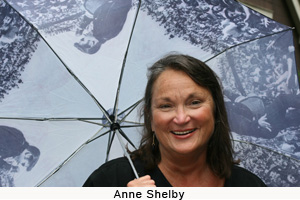 We returned in anticipation of Anne Shelby’s keynote speech in the humanities theatre. Shelby has a wide-ranging talent for children’s books, poems, newspaper columns, and plays. Her talk captured her personality—affable, fun, and richly influenced by Appalachian culture—while setting the stage for the rest of the weekend in reflecting on the meaning and impact of stories; from tall tales to Moby Dick, Shelby said, stories are the lifeblood of civilization. In probably the best observation of the speech, she slyly undermined the old saw that there are two types of stories: someone goes on a journey or someone new comes to town. “Isn’t that the same story with a different perspective?”she asked. We need and crave stories, she said, because we’re “storytelling animals.” Voice, print, radio, film, television, Internet—they’re all a way of expressing the shared art of the story. Stories shape our experiences into comprehension—to make what’s overwhelming intellectually and emotionally palatable.
We returned in anticipation of Anne Shelby’s keynote speech in the humanities theatre. Shelby has a wide-ranging talent for children’s books, poems, newspaper columns, and plays. Her talk captured her personality—affable, fun, and richly influenced by Appalachian culture—while setting the stage for the rest of the weekend in reflecting on the meaning and impact of stories; from tall tales to Moby Dick, Shelby said, stories are the lifeblood of civilization. In probably the best observation of the speech, she slyly undermined the old saw that there are two types of stories: someone goes on a journey or someone new comes to town. “Isn’t that the same story with a different perspective?”she asked. We need and crave stories, she said, because we’re “storytelling animals.” Voice, print, radio, film, television, Internet—they’re all a way of expressing the shared art of the story. Stories shape our experiences into comprehension—to make what’s overwhelming intellectually and emotionally palatable.
At the end of her fascinating keynote address, Shelby read from her own work in progress: Mine, a story collection. The stories focus on issues surrounding the controversial practice of mountaintop-removal mining, and thus Shelby’s reading neatly established a second major theme of the weekend: the need to preserve the mountains as well as mountain literature. Praise for storytelling as a synonym for culture, a discussion of the comforting but sometimes fleeting idea of home, and an argument against Big Coal comprised Anne Shelby’s masterful sixty minutes at the podium.
Shelby would seem to be an impossible act to follow, but a reception honoring the career and legacy of Jeff Daniel Marion managed to raise the bar. Friday night, inside the R. Jack Fishman Library with dusk supplanting daylight, this reception was an apex of literary celebration and cultural nourishment. Tributes to a remarkable career resounded throughout the beautiful library, as Marion’s wife, poet Linda Parsons Marion, along with Graves, Robert Denham, Nelda Hill, and Marianne Worthington, each spoke about the beloved writer, teacher, and mentor. Graves called Marion’s poetry the greatest in Tennessee history. (Later, Marion himself tagged Graves as the next great hope for the region.) Hill described discovering freedom in Marion’s “subtle, but not difficult” mentorship, and Worthington found “how to get back home” through his work.
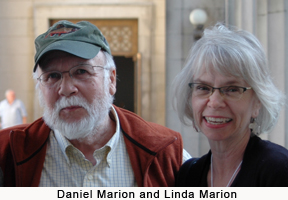 In an email the following week Marion beautifully and succinctly explained what that Friday night meant to him: “I’ve always valued community and have spent most of my life as a teacher and mentor and editor and writer espousing a sense of place and the values of community, of contributing your talents to the place where you live,” he wrote. “So to be recognized by your fellow community members, friends, and former students for the ways in which you’ve contributed to their lives is both genuinely touching and fulfilling.”
In an email the following week Marion beautifully and succinctly explained what that Friday night meant to him: “I’ve always valued community and have spent most of my life as a teacher and mentor and editor and writer espousing a sense of place and the values of community, of contributing your talents to the place where you live,” he wrote. “So to be recognized by your fellow community members, friends, and former students for the ways in which you’ve contributed to their lives is both genuinely touching and fulfilling.”
Saturday brought daunting weather, but snow did not delay the scheduled scholarly sessions—a host of academic papers featuring close readings of the work of selected Appalachian writers. Like the writing workshops the day before, Saturday’s sessions overlapped each other, with two or three presentations happening simultaneously. Catherine Childress, who presented a paper on Jesse Graves, called the Mildred Haun Conference more celebratory and less “stuffy” than most literary conferences, and the brisk pace of the schedule certainly seemed designed to keep the vast amount of scholarship from overwhelming other aspects of the conference. After the first set of papers, for example, Sherri Jacobs, Christie Wilson, and others performed John Lee Welton’s Tales from Electric Mountain before breaking for an extended lunch. More scholarly sessions were then followed by The Long Pilgrim: Songs and Stories of Aunt Molly Jackson, Anne Shelby’s one-woman show.
According to co-director Sherri Jacobs, this year’s Mildred Haun Conference hosted roughly a hundred participants—up significantly from the seventy or so who attended last year. Viki Rouse is the genius behind the MHC, according to Jacobs, but when she was unable to attend this year, Jacobs and Christie Wilson assumed her responsibilities. With Rouse back at work soon, they’ll all spend much of the next year planning for the 2014 conference and procuring commitments for appearances by Appalachia’s most decorated writers.

